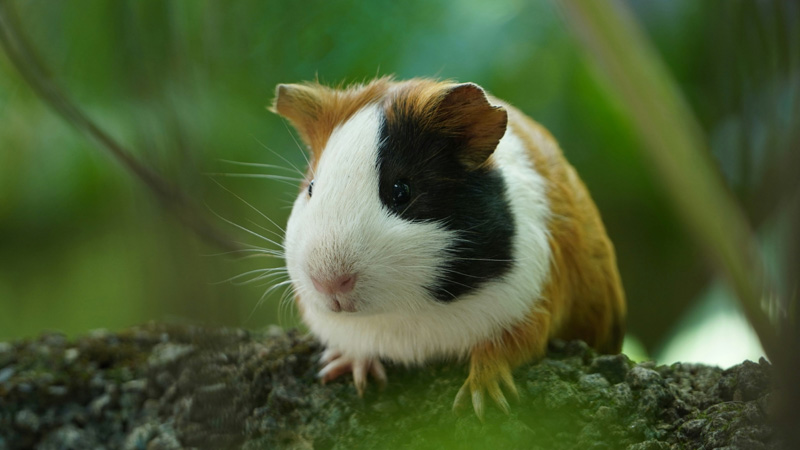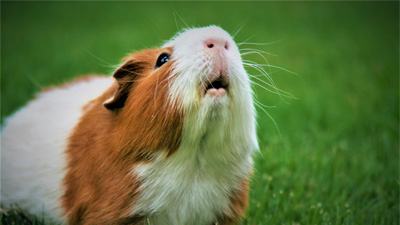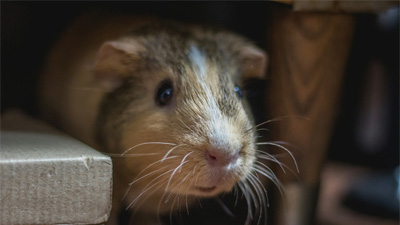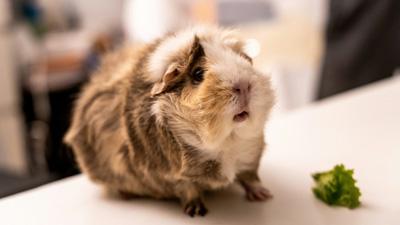How Long Do Guinea Pigs Live?

Photo by Amjith S on Unsplash
Guinea pigs, also known as cavies, are beloved small pets known for their adorable appearance, gentle nature, and sociable personalities. If you're considering bringing a guinea pig into your home, one of the essential questions you may have is, "How long do guinea pigs live?" Understanding the lifespan of guinea pigs is crucial for providing proper care and ensuring a fulfilling relationship with your furry companion.
In this comprehensive guide, we'll explore various factors that influence guinea pig lifespan, common health issues, and tips for promoting longevity and well-being.
Guinea Pig Lifespan
Guinea pigs have a relatively long lifespan compared to other small pets, with an average life expectancy ranging from 5 to 7 years. However, with proper care and attention, some guinea pigs may live even longer, occasionally reaching 8 years of age or more. The lifespan of a guinea pig can be influenced by various factors, including genetics, diet, environment, veterinary care, and overall well-being.
Factors Influencing Guinea Pig Lifespan
Genetics:
Like humans and other animals, genetics play a significant role in determining a guinea pig's lifespan. Some guinea pigs may be genetically predisposed to certain health conditions or may have a stronger constitution that contributes to a longer life.
Diet:
A balanced and nutritious diet is essential for maintaining the health and vitality of guinea pigs. A diet high in fiber, such as Timothy hay or orchard grass, along with fresh vegetables, fruits, and a small amount of commercial guinea pig pellets, can help support digestive health and overall well-being. Avoiding foods high in sugar, fat, or calcium is crucial for preventing obesity and related health issues.
Environment:
Providing a clean, comfortable, and stimulating environment is essential for promoting the health and longevity of guinea pigs. A spacious cage with plenty of room to move around, exercise, and explore is necessary. Guinea pigs also benefit from mental stimulation, enrichment activities, and social interaction with their owners.
Veterinary Care:
Regular veterinary check-ups are essential for monitoring the health of guinea pigs and addressing any potential health concerns promptly. Routine health exams, vaccinations, parasite prevention, and dental care can help prevent or manage health issues that may arise and contribute to a longer lifespan.
Socialization:
Guinea pigs are social animals that thrive on companionship and interaction with humans and other guinea pigs. Providing opportunities for socialization, handling, and playtime can help prevent boredom and loneliness and contribute to a happy and healthy life.
Common Health Issues in Guinea Pigs
While guinea pigs are generally hardy animals, they are susceptible to certain health issues that can affect their lifespan and quality of life. Being aware of these common health problems and taking proactive steps to prevent or address them is essential for promoting the longevity of guinea pigs. Some common health issues in guinea pigs include:
Dental Problems:
Guinea pigs have continuously growing teeth that require regular chewing to wear down properly. Dental problems such as overgrown teeth, malocclusion, or dental abscesses can occur if their teeth are not properly maintained. Providing plenty of hay and chew toys can help prevent dental issues.
Respiratory Infections:
Guinea pigs are prone to respiratory infections, especially if they are housed in damp or poorly ventilated environments. Symptoms of respiratory infections may include sneezing, coughing, labored breathing, or discharge from the nose or eyes. Prompt veterinary attention is essential for treating respiratory infections and preventing complications.
Skin Conditions:
Skin conditions such as fungal infections, mites, or abscesses can occur in guinea pigs, leading to discomfort and potential health complications. Regular grooming, maintaining a clean living environment, and providing proper nutrition can help prevent skin issues in guinea pigs.
Digestive Problems:
Guinea pigs have sensitive digestive systems and are prone to gastrointestinal issues such as bloating, diarrhea, or gastrointestinal stasis (ileus). Providing a diet high in fiber, avoiding sudden dietary changes, and offering plenty of fresh water can help support digestive health in guinea pigs.
Urinary Tract Problems:
Urinary tract infections or bladder stones can occur in guinea pigs, leading to discomfort and potential urinary tract obstruction. Providing a balanced diet, adequate hydration, and regular veterinary check-ups can help prevent urinary tract problems in guinea pigs.
Promoting Longevity and Well-Being in Guinea Pigs
While genetics and environmental factors play a significant role in determining a guinea pig's lifespan, there are steps you can take to promote longevity and well-being in your furry companion:
Provide a Balanced Diet:
Offer a diet high in fiber, including hay, fresh vegetables, fruits, and a small amount of commercial guinea pig pellets. Avoid feeding guinea pigs foods that are high in sugar, fat, or calcium, as these can lead to obesity and related health issues.
Maintain a Clean Environment:
Regularly clean and disinfect your guinea pig's cage to prevent the buildup of bacteria, parasites, and odors. Provide fresh bedding, clean water, and ample opportunities for exercise and enrichment.
Monitor Health and Behavior:
Keep an eye on your guinea pig's overall health and behavior and seek veterinary attention if you notice any signs of illness or discomfort. Routine health check-ups can help detect and address health issues early, improving the chances of successful treatment.
Handle with Care:
Handle your guinea pig gently and avoid rough or excessive handling that could cause stress or injury. Allow your guinea pig to become accustomed to being handled gradually, and always supervise interactions with children or other pets.
Provide Mental Stimulation:
Offer a variety of toys, tunnels, and enrichment activities to keep your guinea pig mentally stimulated and prevent boredom. Rotate toys regularly to keep your guinea pig engaged and entertained.
Practice Good Hygiene:
Wash your hands thoroughly before and after handling your guinea pig to prevent the spread of germs and bacteria. Keep your guinea pig's cage clean and free from waste to reduce the risk of contamination.
Conclusion
In conclusion, guinea pigs have an average lifespan ranging from 5 to 7 years, but with proper care and attention, they can live even longer. Understanding the factors that influence guinea pig lifespan, common health issues, and tips for promoting longevity and well-being is essential for providing the best possible care for your furry companion. By providing a balanced diet, maintaining a clean environment, monitoring health and behavior, handling with care, providing mental stimulation, and practicing good hygiene, you can help ensure a happy, healthy, and fulfilling life for your guinea pig for many years to come.
You May Also Like
 Guinea PigWhat Do Guinea Pig Noises Mean?
Guinea PigWhat Do Guinea Pig Noises Mean? Guinea PigGuinea Pigs vs. Hamsters: What Is the Difference?
Guinea PigGuinea Pigs vs. Hamsters: What Is the Difference? Guinea PigWhat Can Guinea Pigs Eat? A Comprehensive Guide
Guinea PigWhat Can Guinea Pigs Eat? A Comprehensive Guide Guinea PigA Comprehensive Guide to Types of Guinea Pigs
Guinea PigA Comprehensive Guide to Types of Guinea Pigs Guinea PigCan Guinea Pigs Have Mango? Yes!
Guinea PigCan Guinea Pigs Have Mango? Yes! Guinea PigCan Guinea Pigs Eat Celery? (Yes! Moderation)
Guinea PigCan Guinea Pigs Eat Celery? (Yes! Moderation)